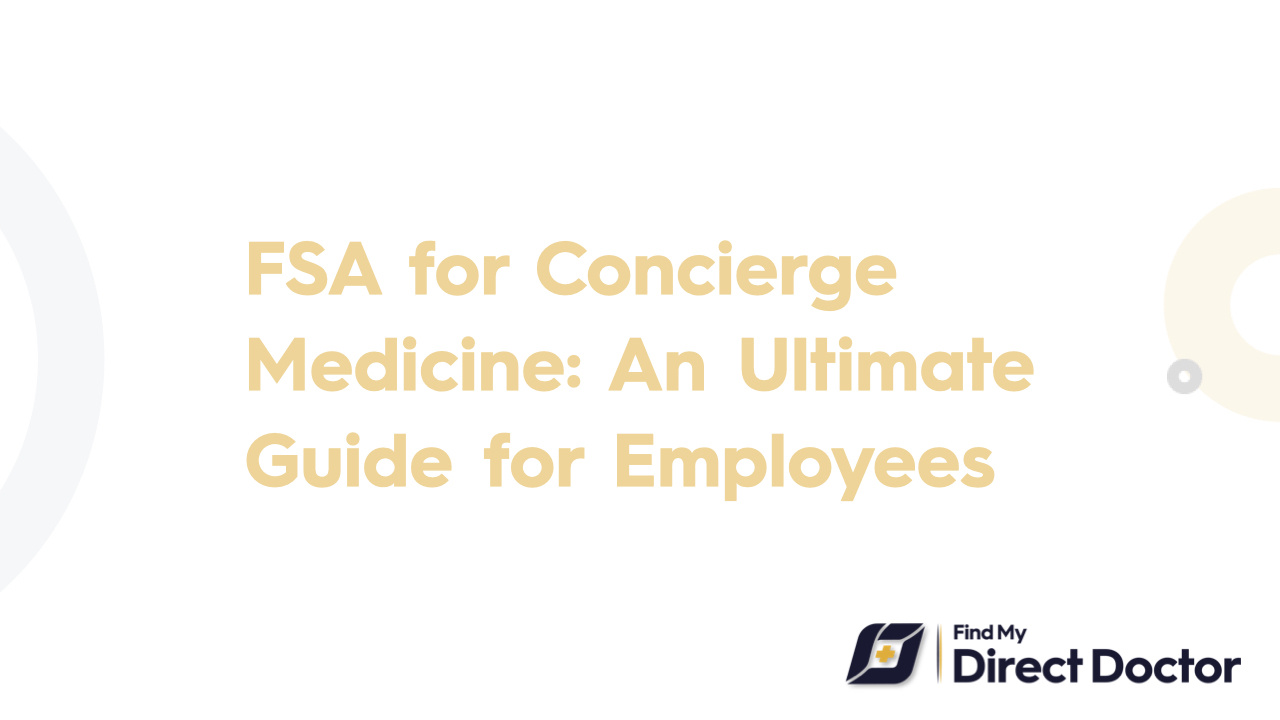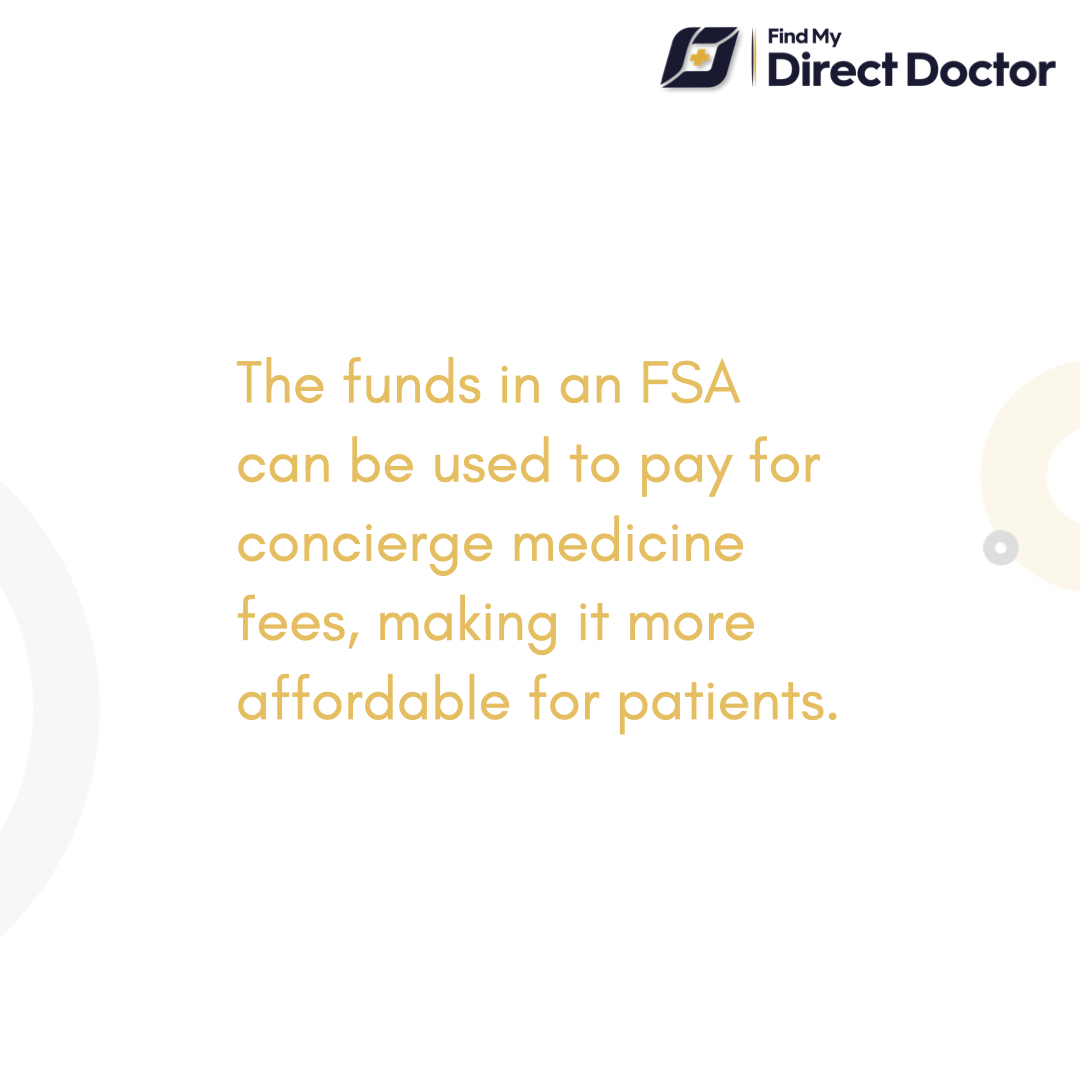



Concierge medicine is a growing trend in the healthcare industry. It offers patients a more personalized and comprehensive approach to their medical needs. One of the benefits of concierge medicine is the ability to use an FSA (Flexible Spending Account) to pay for certain healthcare expenses.

An FSA, or Flexible Spending Account, is a pre-tax account that can pay for a wide range of healthcare expenses. The money in an FSA is deducted from your paycheck before taxes are calculated, which means you can lower your taxable income. For 2025, individuals can contribute up to $3,300 to a health FSA; if the plan allows, the maximum carryover of unused funds into 2026 is $660.
This can be significant savings, especially if you have high healthcare expenses. The money in an FSA can be used to pay for a wide range of healthcare expenses, including deductibles, copays, and prescription drugs. It can also pay for certain over-the-counter drugs and medical supplies.
The cost of concierge medicine can be significant, and while FSA funds cannot typically be used for the membership fee itself, they may help offset costs for specific medical services received.
As concierge medicine membership or retainer fees are generally not covered by traditional insurance, patients must pay for these services out of pocket. This is where an FSA can potentially come in handy for eligible medical services that are billed separately. The funds in an FSA can be used to pay for IRS-qualified medical expenses, which may include certain services obtained through a concierge doctor, but usually not the primary membership fee itself.
To use an FSA for concierge medicine, you must enroll in a plan with a concierge medicine practice. Once you are enrolled, you can start contributing to your FSA. You, the employee, determine your contribution amount up to the annual IRS limit, and this enrollment typically occurs during your employer's open enrollment period.
You can use the money in your FSA to pay for the cost of specific, eligible medical services received through concierge medicine, such as itemized doctor's visit fees for treatment, lab work, or diagnostic tests that are not covered by the membership fee. However, FSA funds generally cannot be used for the monthly or annual membership or retainer fees themselves, as these are often considered fees for access or future availability rather than for direct medical care already rendered.
It is important to note that the eligibility of expenses for FSA reimbursement depends on IRS guidelines and how the concierge practice bills for its services. It's not about whether practices "accept FSAs," but whether they can provide itemized receipts for qualified medical services separate from the membership fee. Be sure to check with your practice about their billing for specific medical services before enrolling in an FSA.

There are several benefits to using an FSA for eligible expenses incurred through concierge medicine, including:
To maximize your FSA for concierge medicine, it is important to plan and make the most of the money in your account.
One way to maximize your FSA is to plan and schedule appointments and procedures early in the year. This will allow you to take advantage of the money in your FSA before it expires. It's also important to keep track of your expenses and make sure you are using your FSA for eligible expenses.
Another way to maximize your FSA is to take advantage of any additional services offered by your concierge medicine practice that qualify as eligible medical expenses and are billed separately from the membership fee. Many practices offer telemedicine and house calls, which your FSA can cover if they are for the diagnosis, treatment, mitigation, or prevention of a specific medical condition and are itemized as such. Check with your practice to see what additional services they offer and if those specific services, when billed appropriately, your FSA covers them.
Concierge medicine is a growing trend in the healthcare industry, offering patients a more personalized and comprehensive approach to their medical needs.
One of the key benefits of concierge medicine is the ability to use a Flexible Spending Account (FSA) to pay for certain qualified medical services.
Using pre-tax dollars to pay for eligible medical fees associated with services from a concierge doctor (distinct from the general membership fee), patients can save money on their taxes, have more flexibility in their healthcare, and improve their overall health and well-being.
If you're looking for a doctor that offers comprehensive and personalized concierge care, find a Concierge Doctor on FindMyDirectDoctor.com that is qualified for primary care.
Generally, the membership or retainer fee for a concierge doctor is NOT FSA eligible. However, fees for specific, itemized medical services (like a consultation for a new medical issue, lab tests, or procedures) that are rendered by the concierge doctor and meet IRS criteria as qualified medical expenses can be eligible for FSA reimbursement. It's crucial to differentiate between the access fee and fees for actual medical care received.
FSA funds typically do NOT cover the membership or retainer fee for concierge medicine. However, FSA funds can be used to reimburse you for qualified medical expenses for specific medical care services you receive through a concierge practice, provided these services are billed separately and meet IRS eligibility guidelines. Always verify with your FSA administrator and the concierge practice regarding how services are billed.